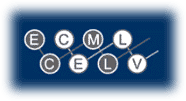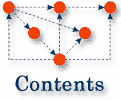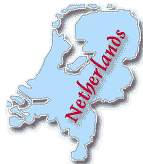
Quality assurance in the public sector
in the Netherlands
Hans Brosse
![]()
MAIN CHARACTERISTICS OF THE DUTCH EDUCATION SYSTEM:
- The entire system is very "legalistic", all educational aspects being regulated by laws;
- Over the last 25 years, the system has shown a steady process of innovation;
- The freedom of education is very developed by the structure, the role and function of schools.
THE NATIONAL CONTEXT:
In the Netherlands, compulsory education is from 5 until the age of 16.
12 years in total.
A very rich menu of different types of schools is available due to the
freedom of education.
Three different types of freedom exist:
- the freedom of foundation (every citizen has the right to found a school without seeking the prior permission of the government),
- the freedom of orientation (a school may be based on different religious beliefs, ideology or educational views),
- the freedom of organisation (schools are free in their choice of teaching methods and material).
Although about 75% of Dutch schools are run by private organisations, all schools in the Netherlands are on equal footing in terms of funding. The government pays 100% of the school budget, of the public as well as of the private schools. The same salary and pension rules apply to all teachers, private and public.
CHANGE OF PERSPECTIVE IN THE QUALITY ASSURANCE SYSTEM
Until the eighties, evaluation of the school and its system was the task
of the Dutch Inspection. Schools had to implement and apply the many detailed
financial and educational rules of the Ministry.
In 1993 the Minister of Education and the boards of schools agreed upon more autonomy of the schools, decentralisation of tasks and their transfer to the municipal authorities, as well as making first of all the schools themselves responsible for the quality of education.
INSTRUMENTS FOR INTERNAL AND EXTERNAL QUALITY ASSURANCE
In order to guarantee an account to the government a school must produce
several documents:
- A yearly school guide, (information on the school, aims, activities, results booked)
- A four year school plan (educational policy, human resources policy, quality assurance policy)
- An arrangement for complaints (parents or others should know how to complain and what will be done with their complaints)
- An in service training plan for the teaching staff.
The other instruments for the government in assessing and monitoring
the quality of schools and the school system are:
At
|
At
|
At
|
Legal
|
External monitoring |
|
- attainment targets for all topics and subjects, the examination programmes and the central exams |
- fixed number of lessons per year
- fixed combinations of examination subjects - lesson tables and fixed study load |
- qualification requirements for teachers
- pupil admittance criteria |
- funding and housing
- in-service training, participation - legal position and terms of employment - educational support structure - teacher training institutions - accountability |
- inspection visits
- regular tests - evaluation - cohort investigation - international comparisons |
THE QUALITY CARD
The cards provide us with the following data:
- Name of school
- type of education offered
- denomination
- number of students or pupils
- staff
- administration support
- composition of the classes
- scores and results per year, per subject and per different type of education
- the results of the previous year's national exam, indicated in numbers and in percentages.
On the basis of the information provided by the cards, the results of all schools can be studied via the internet (www.kwaliteitskaart.nl/kwaliteit2001). Thus, the system of quality cards makes it possible to investigate any school any time, to see their results and compare them with other schools, including the average scores at national and local level.
KEY AREAS OF QUALITY
The Dutch Inspection uses features of quality, such as: the results
or outcomes, the pedagogical climate, the management, attainment targets,
examination programmes, time regulations etc. These features
are all based on legal regulations.
The system itself has proved to be in a constant process of innovation, so much now that schools have come to say: "leave us alone for a while".
INTERNATIONALISATION OF EDUCATION
An important aspect to achieve quality is the internationalisation
of education. Special substantial budgets (national and European)
are available for schools to link their institution with partners abroad,
to invite foreign experts to visit the school and use the programmes and
projects for in-service training of the teaching staff.
The Europees Platform has developed special self-evaluation cards for the schools to measure their progress in internationalisation and the use of ICT in education.
As a part of the policy to improve foreign language teaching the Europees Platform coordinates - at the request of the minister of education - a network of schools offering bilingual education.

